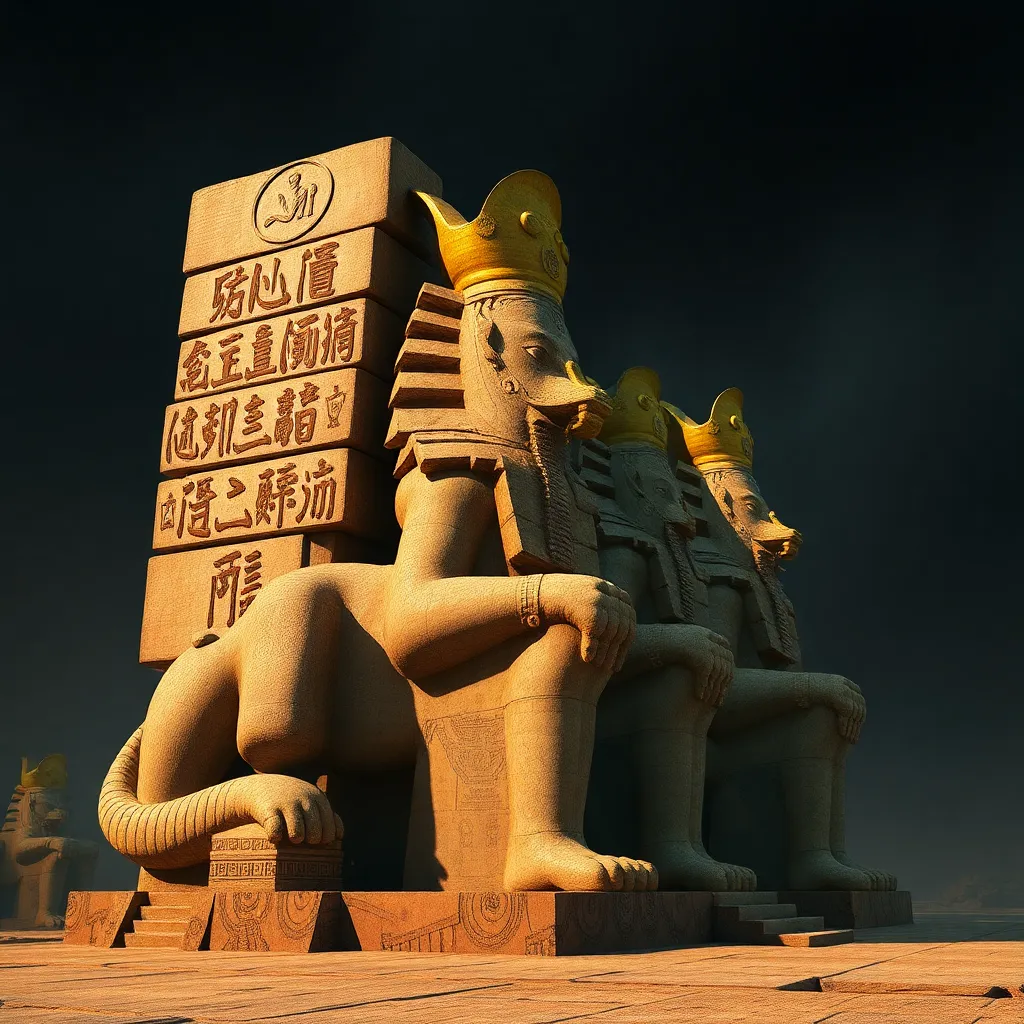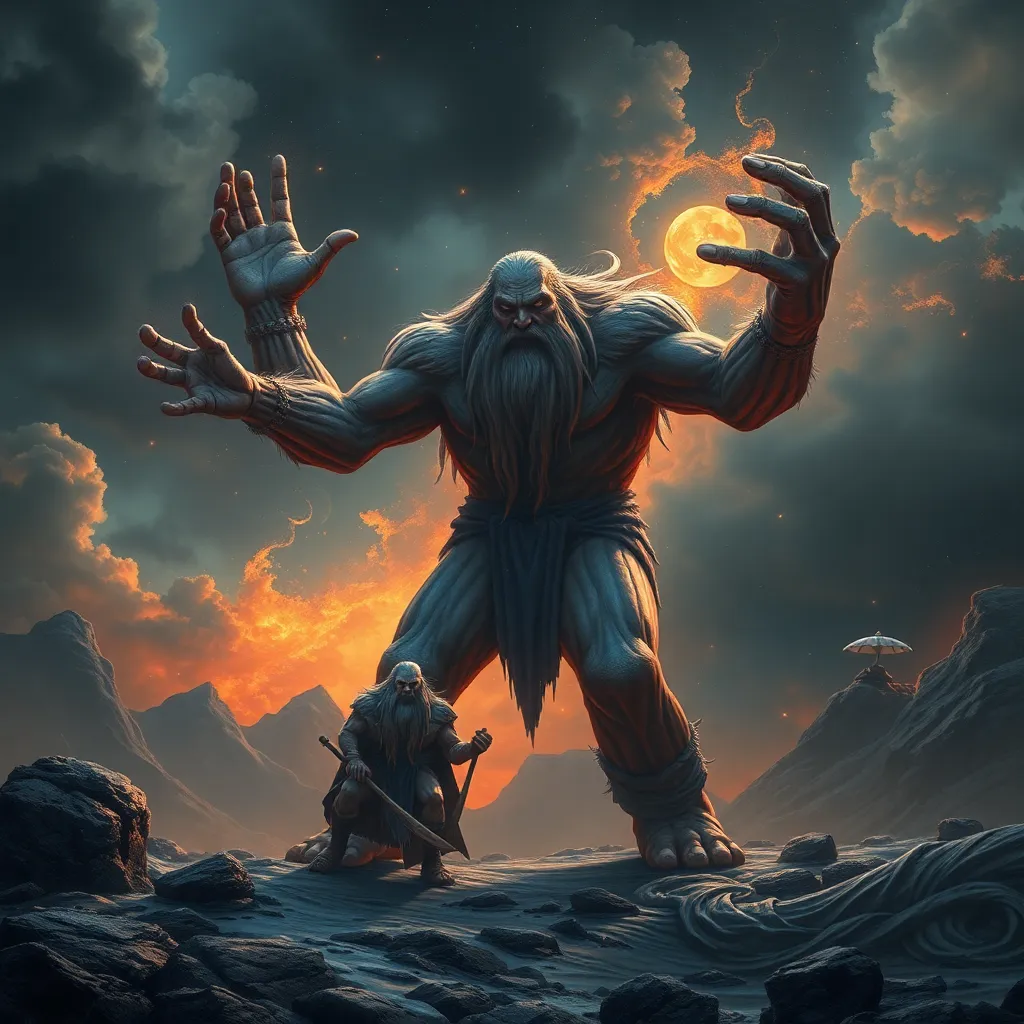Anubis and the Canine: Exploring the Connection Between the God and Dogs
I. Introduction
Anubis, the ancient Egyptian god associated with the afterlife, holds a significant place in Egyptian mythology. Revered for his role in mummification and guiding souls to the afterlife, Anubis embodies the profound connection between life and death. Alongside him stands the dog, a creature that was equally important in ancient Egyptian culture, serving as a companion, protector, and symbol of loyalty.
This article aims to delve into the intricate relationship between Anubis and dogs, highlighting how these majestic animals not only influenced religious practices but also impacted daily life in ancient Egypt.
II. The Mythological Role of Anubis
Anubis is widely recognized as the god of the afterlife, overseeing the process of mummification and ensuring that the deceased are guided safely to the underworld. He is often depicted as a man with the head of a jackal, symbolizing his connection to the dead and the graveyards that the jackals frequented.
- God of the Afterlife: Anubis played a critical role in the judgment of souls, weighing the heart of the deceased against the feather of Ma’at to determine their fate.
- Symbolism: Common symbols associated with Anubis include the ankh (symbol of life), the sistrum (a musical instrument), and the scales of justice.
- Funerary Practices: Anubis was integral to the mummification process, ensuring that bodies were preserved and prepared for the afterlife.
III. The Symbolism of Dogs in Ancient Egypt
In ancient Egypt, dogs were more than just pets; they were revered companions and important figures in religious contexts. The Egyptians had a profound respect for these animals, which they often associated with loyalty and protection.
- Companionship: Dogs provided companionship to families and were often kept in homes as beloved pets.
- Guardianship: They served as protectors, safeguarding homes and livestock from intruders and wild animals.
- Spiritual Significance: Dogs were believed to possess spiritual qualities, acting as guides for the souls of the deceased in the afterlife.
IV. Anubis’s Canine Features
Anubis’s jackal-headed appearance is one of the most distinctive features of this deity. The jackal, a scavenger often found in cemeteries, was emblematic of the cycle of life and death.
- Jackal Significance: In ancient Egyptian beliefs, the jackal was seen as a protector of graves, which is why Anubis was depicted in this form.
- Comparative Analysis: Other deities in Egyptian mythology also have animal forms, such as Horus (falcon) and Sekhmet (lioness), illustrating the importance of animals in representing divine attributes.
V. Historical Evidence of the Anubis-Dog Connection
Archaeological evidence and artistic representations have unveiled the connection between Anubis and dogs throughout ancient Egyptian history.
- Archaeological Findings: Excavations in ancient cemeteries have revealed dog burials, indicating their significance in funerary practices.
- Artistic Representations: Many ancient artifacts depict Anubis alongside dogs, reinforcing their role in the afterlife.
- Textual References: Ancient texts, including the Pyramid Texts and Coffin Texts, mention Anubis in relation to dogs, emphasizing their importance in rituals.
VI. Modern Interpretations and Cultural Impact
The legacy of Anubis continues to resonate in contemporary culture, where he is often featured in films, literature, and art.
- Contemporary Media: Anubis has appeared in various films and TV shows, often depicted as a mysterious and powerful figure.
- Fascination with Dogs: The bond between humans and dogs persists, mirroring the ancient reverence for these animals.
- Modern Symbolism: Anubis is sometimes used symbolically in dog-related contexts, signifying loyalty, protection, and companionship.
VII. The Spiritual and Emotional Bond Between Humans and Dogs
The relationship between humans and dogs in ancient Egypt was deeply spiritual and emotional. Dogs were not just pets; they were integral to various rituals and spiritual practices.
- Rituals: Dogs participated in funerary rituals, believed to help guide the deceased to the afterlife.
- Emotional Bonds: The companionship provided by dogs helped alleviate grief and provided comfort in times of loss.
- Comparison to Modern Relationships: The bonds formed between humans and dogs today echo the ancient connection, showcasing loyalty, love, and companionship.
VIII. Conclusion
The connections between Anubis and dogs reveal a rich tapestry of cultural significance in ancient Egypt. Anubis, as the god of the afterlife, embodies the loyalty and protective nature of dogs, which were essential companions both in life and death. The enduring legacy of Anubis and the deep-rooted bond between humans and dogs provide valuable insights into ancient Egyptian society and its views on life, death, and spirituality.
As we reflect on the significance of this connection, we can appreciate how the reverence for Anubis and dogs continues to influence our understanding of ancient cultures and the timeless relationship between humans and their canine companions.



